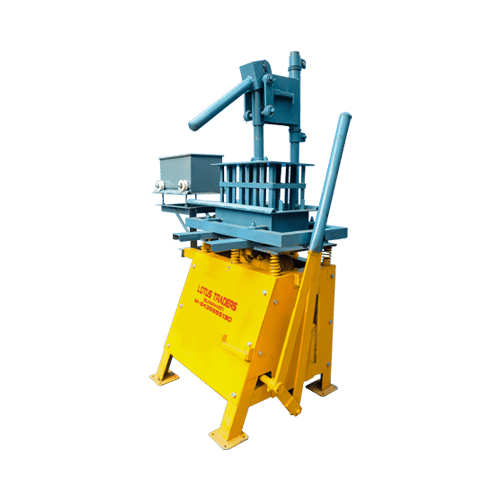


As an exporter, manufacturer, importer, and distributor of construction equipment, we promise our customers to provide with the best quality products by any means possible. Our company reflects our heritage through our commitment to meet the diverse needs and needs of our customers.
We provide innovative building solutions and excellent value to meet the requirements of our customers. We keep the satisfaction of our customers a priority. Our transparency, integrity, and quality will never fail to meet the expectations of our customers. Our main concern is our customers and their interests. We work on state-of-the-art tools for well-developed infrastructure with exact customer requirements.
Welcome to Lotus Traders, a fast-growing manufacturer, exporter, and trader of high-quality concrete block machines, trimix, and concrete mixers. Established in 2009, we are committed to delivering top-notch products from Guwahati, Assam, India. Explore our extensive range and experience the promise of quality in every product
We are Lotus Traders located at FF/L2/C, Amulya Complex, Zootiniali, RG Baruah Rd, near Zoo Tiniali, Guwahati, Assam, India. We expertise in manufacturing and trading of equipment’s used in building construction and proudly present ourselves as one of the pioneers with presence in this field since 2009.
Our business endeavour has facilitated entrepreneurship of young enterprising enthusiast of North East India in particular. This has encouraged us to take steps to enhance our network of maintenance of products and keep an inventory for fast and efficient response to maintenance concerns of buyers.
Lotus Traders is a company based in Zoo Tiniali, Guwahati, specializing in the manufacturing and trading of equipment used in building construction. We have been operating in this field since 2009.
We offer a wide range of products, including construction equipment such as concrete mixers, vacuum dewatering pumps, surface vibrators, and more. Additionally, we provide utility items like magnetic relays, digital timers, electric contactors, and compression springs, among others.
As an exporter, manufacturer, importer, and distributor of construction equipment, we prioritize delivering high-quality products to our customers. Our commitment to meeting their demands, ensuring transparency, integrity, and maintaining a focus on safety and security of mechanical operations sets us apart in the market.
Our supervisors thoroughly verify procured products on various parameters related to performance, user convenience, durability, and safety. We strictly adhere to industry norms and government guidelines to meet safety standards and ensure customer satisfaction
We are committed to lowering the carbon footprint by creating eco-friendly, clean, sustainable, and energy-efficient machines with zero accidents. Our aim is to improve living standards and make the planet a safer place for future generations.
At Lotus Traders, our team believes in hard work and active participation in the construction business. We work closely with our clients, providing clear explanations, contract terms, and a direction to meet their specific needs.
The company's CEO, Manab Bhattacharya, has played a vital role in elevating Lotus Traders to new heights. His vision is to create a dedicated team and provide the best experience for clients by adhering to core values and ethics.
Our mission is to become the customers' most preferred choice by attaining excellence in quality. We aim to provide the best construction machinery, fostering an environment where clients, employees, and owners can thrive together.

We are contributing to building our nation stronger, safer, and more beautiful by providing the best construction machinery in northeast India. Our vision is to provide Construction machines, chemicals, and Construction testing equipment at an affordable price